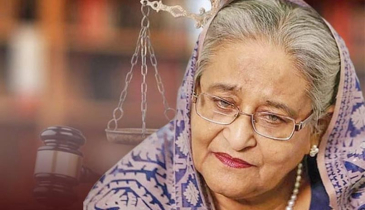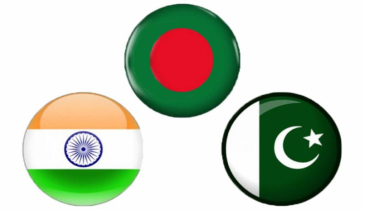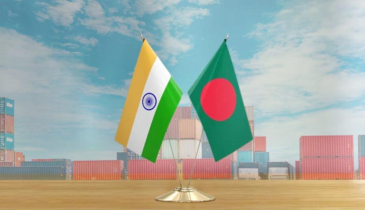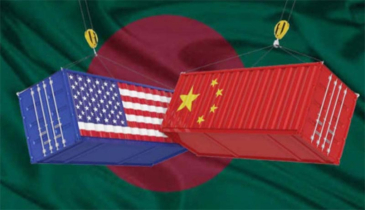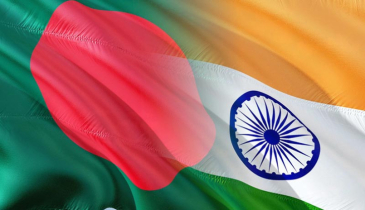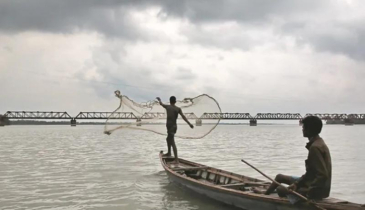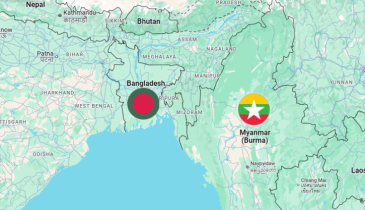Rohingya Crisis: A Call for Repatriation or Resettlement
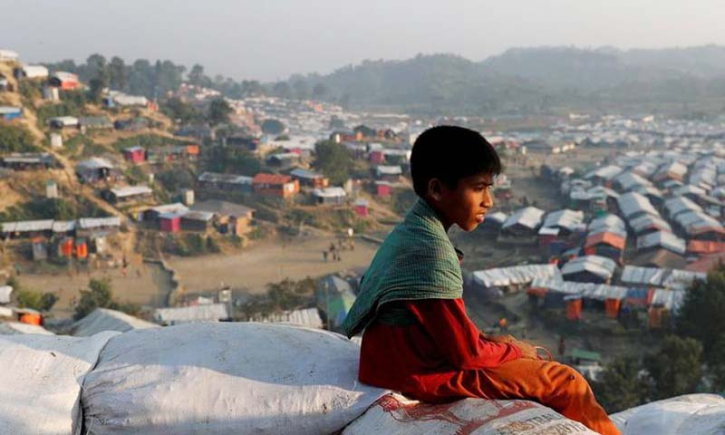
The Rohingya people, victims of genocide and ethnic cleansing by Myanmar’s military junta, continue to face severe displacement and hardship. The internal crisis in Myanmar, particularly the renewed hostilities between the Arakan Army and the Junta, along with targeted attacks on Rohingya settlements, has intensified the flow of refugees into Bangladesh. Reports indicate that 15,000 refugees have recently crossed into Bangladesh via the Ukhia-Teknaf border, with more waiting to follow. Despite efforts by Bangladesh’s Border Guard (BGB) to prevent further entries, the situation remains critical. Over a million Rohingya refugees already reside in Bangladesh following the mass exodus in 2017, and the arrival of more is a growing concern.
Bangladesh has shown immense compassion in hosting these refugees, but the burden has become unsustainable for the densely populated and resource-strained nation. Bangladesh, already grappling with political, economic, and law-and-order challenges, cannot continue to bear the additional weight of incoming refugees. Tensions between Rohingya refugees and the local population are rising, and a new wave of arrivals would further strain the country economically and politically.
Meanwhile, living conditions in the Rohingya camps continue to deteriorate due to inadequate food supplies and insufficient shelters. The global focus has shifted to other humanitarian crises, such as those in Gaza and Ukraine, diverting attention and resources away from the Rohingya. As a result, international funding for the refugees has decreased, creating an increasingly dire situation in the camps. Bangladesh is eager to find a solution to this protracted crisis.
While other regional nations such as Thailand, Malaysia, and Indonesia host some Rohingya refugees, Bangladesh bears the brunt of the crisis. The country’s efforts to support the Rohingya have come at a significant cost to its resources and social stability. Recently, Dr. Muhammad Yunus, Head of the interim government of Bangladesh, has called for stronger international action to ensure the repatriation of the Rohingya to Myanmar. As a temporary measure, Yunus also urged for third-country resettlement to ease Bangladesh’s burden.
Two Solutions: Repatriation or Third-Country Resettlement
Two primary solutions to the Rohingya crisis are currently being discussed: repatriation to Myanmar or resettlement in third countries.
Repatriation would require international guarantees to ensure the Rohingya could safely and with dignity return to Myanmar, with assurances that ethnic violence and persecution would end, and their rights would be secured. This approach has been supported by Bangladesh and is seen as the most desirable long-term solution.
Third-country resettlement involves distributing the refugee burden among the global community. Some progress has been made in this area. Since 2010, the United States has relocated over 17,000 Rohingya, including 2,800 this fiscal year. Canada, European nations, and Japan have also taken in smaller numbers. In December 2022, the U.S. government announced a collaboration with Bangladesh and the UNHCR to initiate a resettlement program for Rohingya refugees as part of the U.S. Refugee Admissions Program. This plan aims to increase the number of Rohingya accepted by the U.S., potentially up to 20,000 annually. There is hope that this initiative will encourage other countries, such as Australia, Canada, and France, to adopt similar resettlement strategies.
While third-country resettlement offers a solution to the crisis and creates new opportunities for the Rohingya, it raises several concerns. First, the slow and bureaucratic nature of resettlement means that only a fraction of the 1.2 million Rohingya refugees in Bangladesh will benefit from this program. No doubt this kind of process requires extensive documentation, verification, and other formalities.
Secondly, news of resettlement could trigger additional flows of refugees from Myanmar into Bangladesh. As media coverage of resettlement opportunities in countries like the U.S. and Japan increases, more Rohingya are likely to flee Myanmar and seek refuge in Bangladesh and neighboring countries, further exacerbating the crisis. Moreover, the upcoming U.S. elections could potentially affect the pledges of resettlement if there is a political shift.
The Need for Repatriation
In light of these concerns, Bangladesh must continue to prioritize the repatriation of Rohingya refugees to Myanmar. The global community must be reminded that this crisis is not only Bangladesh’s problem; it impacts South and Southeast Asia, and beyond. Rohingya refugees are also present in Malaysia, Thailand, India, and even parts of the Middle East and Europe.
The international community must exert pressure on Myanmar to end the ethnic violence in Rakhine State and secure the return of the displaced Rohingya to their homes. rganizations such as the UN, European Union, ASEAN, BIMSTEC, SAARC, and the OIC need to coordinate efforts to ensure the safe and dignified return of the Rohingya, with the UN acting as a guarantor. Additionally, calls for a UN peacekeeping mission or at least a no-fly zone over Rohingya settlements in Myanmar should be pursued. It is important that Rohingya settlements are not targeted in the ongoing armed conflict between Myanmar’s military Junta and Arakan Army. Massive diplomatic efforts are essential to create an environment conducive to repatriation.
Until this process begins, it is crucial for the international community to continue supporting host countries like Bangladesh through funding for refugee camps, meeting the basic needs of camp residents, and implementing measures to enhance the self-reliance of the refugee population.
Conclusion
The world must recognize that Bangladesh cannot continue to shoulder the burden of such a large refugee population alone. Global solidarity is critical to resolving one of the world’s most pressing humanitarian crises. A sustainable solution lies in either the repatriation of the Rohingya to Myanmar or their resettlement in third countries. Both options require strong international action, financial support, and political will to ensure a humane and just resolution. While third-country resettlement can serve as a last-resort solution, the most desirable outcome is the repatriation of the Rohingya to Myanmar. Robust international support, including efforts to hold perpetrators accountable, is necessary. Concrete actions, not mere diplomacy, are needed to bring about a lasting solution to the crisis.
.png)


